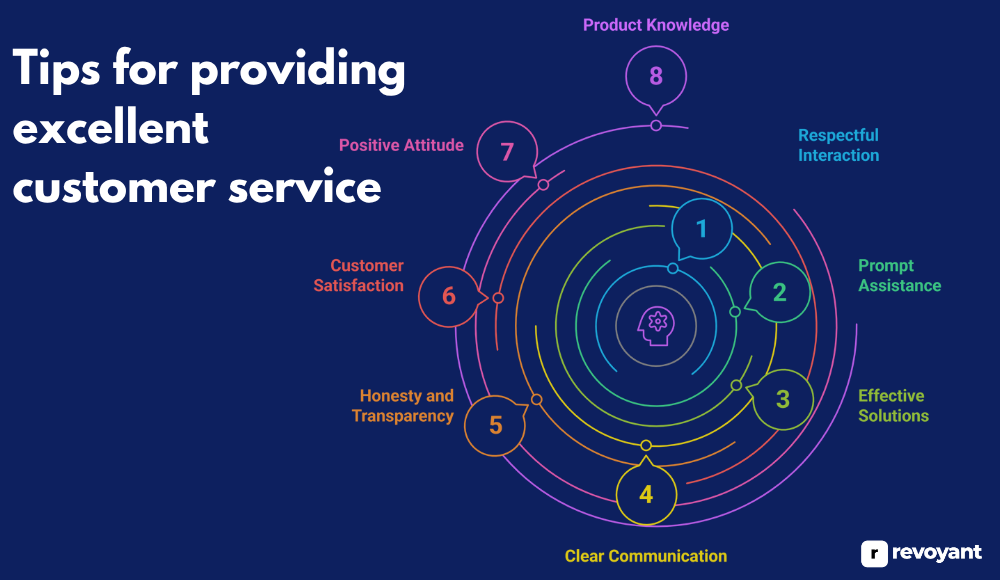Customer service is no longer just a business function—it’s a strategic pillar that defines how companies engage with their customers and differentiate themselves from the competition. Whether it’s through answering a product query, resolving a service issue, or guiding a new customer through their first purchase, customer service is about fostering trust, building relationships, and delivering value at every stage of the customer journey.
What is customer service?
Customer service is the support and assistance a company provides to its customers before, during, and after they purchase a product or service. It includes everything from:

- Answering questions
- Troubleshooting problems
- Offering guidance
- Facilitating returns or exchanges
- Ensuring satisfaction after a purchase
Customer service, in essence, is about not breaking your promises to the customer and helping them get what they need in an easy, satisfactory way.
Customer service: The practice of addressing all of the customer’s requests (before, during, and after requirements fulfilled) so that they receive professional, helpful, and high-quality service or assistance for any need that relates to a client at one point.
Great customer service is fixing issues, and it forms the foundation of brand loyalty, future sales, and good word-of-mouth referrals. And the exact opposite happens when you are not a good service– lost sales, bad reviews, and a bad name.
The evolution of modern customer service
Gone are the days when customer service was confined to a help desk or call center. Today, customer service is a critical component of any cx strategy, leveraging technology and a customer-first mindset to deliver consistent, high-quality experiences.
Key features of modern customer service:
- Omnichannel support: Customers can reach out through phone, email, live chat, messaging apps, and social media, and they expect a seamless experience across all platforms.
- Proactive engagement: Instead of waiting for issues to arise, companies now anticipate customer needs, offering help before problems occur.
- Data-driven insights: Businesses leverage customer data to personalize interactions, predict issues, and optimize the customer experience.
- AI and automation: Chatbots, virtual assistants, and automated systems provide instant answers and streamline repetitive tasks, freeing human agents for complex queries.
Agentic AI, in particular, takes customer service automation to the next level. Unlike rule-based bots, agentic AI operates with autonomy, contextual awareness, and decision-making capabilities that allow it to solve multi-step problems and engage in meaningful, personalized interaction, improving both speed and customer satisfaction.
How customer service works: a step-by-step process
Effective customer service follows a structured approach that ensures every interaction contributes to a positive customer experience.
1. Understanding customer needs
Great service begins with knowing what customers want. This involves:
- Collecting feedback through surveys and reviews
- Observing customer behavior
- Listening actively during interactions
Understanding needs helps businesses tailor their services and resolve issues more efficiently.
2. Accessible communication channels
Offering multiple ways to connect ensures that customers feel supported, no matter their preference. Channels include:
- Phone support
- Email assistance
- Live chat on websites or apps
- Social media platforms
- SMS or messaging apps like WhatsApp
3. Active listening and empathy
Listening is more than hearing—it’s about making the customer feel heard. Empathetic communication includes:
- Acknowledging the customer’s feelings
- Apologizing sincerely when something goes wrong
- Clarifying the issue before offering solutions
4. Problem identification and resolution
Once the issue is clear, agents consult internal resources or escalate appropriately to solve the problem efficiently and accurately. Quick and effective problem-solving builds trust and satisfaction.
5. Timely response and follow-up
Speed matters. Responding promptly shows customers they’re a priority. After resolving the issue, following up ensures that the customer:
- Is satisfied
- Has no remaining concerns
- Feels appreciated
6. Continuous improvement
Customer service is never a finished product. Top-performing businesses regularly:
- Train their teams
- Review performance metrics
- Collect customer feedback
- Adjust policies and tools accordingly.
Tips for providing excellent customer service
Here are proven best practices that can transform ordinary customer support into exceptional service experiences:

1. Treat customers with respect
Respect builds the foundation for trust. Use polite, professional language and avoid being dismissive or impatient—even when the customer is frustrated.
2. Provide prompt assistance
Don’t keep customers waiting. Long wait times create frustration. Implement strategies like:
- Self-service options (FAQs, knowledge bases)
- Live chat support
- Prioritized ticketing systems
3. Find solutions that actually work
Understand the root of the problem and provide tailored solutions rather than temporary fixes. Customers value resolution over apology.
4. Communicate clearly and simply
Avoid jargon and use language that is easy to understand. Keep customers informed about:
- What you’re doing
- Why it’s being done
- What they can expect next
5. Be honest when things go wrong
Transparency earns trust. If your company makes a mistake, own it, apologize, and fix it. Customers are more forgiving of honest errors than evasiveness.
6. Focus on customer satisfaction
Go the extra mile. Personal touches like remembering past purchases or offering follow-up assistance show you genuinely care about their experience.
7. Maintain a positive attitude
Positivity is contagious. Enthusiasm, kindness, and patience can calm tense situations and make customers feel more comfortable and appreciated.
8. Educate your team about your products
A knowledgeable support team is more confident and capable. Ensure that agents:
- Understand your offerings in depth
- Are trained on updates and new features
- Can troubleshoot issues without delay
Final thoughts
Customer service goes beyond just fixing issues, it’s about building relationships with your customers. To know what they need to deliver on time and the right way across every channel, it is all about caring consistently.
While companies that are proactive, personalized, and technology-enabled in their customer service are not just fixing today’s problems, they are in fact creating a future-proof business.
Customer service is the name of the game for all startups and multi-national brands, It is one of the best tools you will ever come across for your growth as well as customer loyalty.





